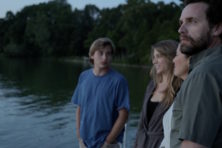June 26 – July 3
- Share
- Tweet
- Pin
- Share
• Legislation co-sponsored by Rep. Garey Bies (R-Sister Bay) to address drunk driving laws was approved by the Assembly Committee on Public Safety. The legislation would require the use of ignition interlock devices, and increase fines, penalties, and license revocation options. The bill has not been passed by the state Assembly or Senate.
• The Wisconsin Assembly Committee on Energy and Utilities passed Assembly Bill 256, which would standardize wind turbine siting ordinances statewide.
The bill would require the Wisconsin Public Service Commission to study and determine permitting, which is now done by individual municipalities. The bill now moves to the state Assembly and Senate for a vote.
• Gibraltar School’s preliminary 2009-10 budget increased less than one percent over the previous year to $9,426,892 – 95 percent of which is funded locally. Four percent of funding comes from the state, and one percent from intermediate sources. The school will receive $16,000 in federal funding in 2009-10. The estimated 2009 mill rate is $2.63 per thousand dollars of property value.
• The Door Community Auditorium negotiated a new lease with Gibraltar Schools. As part of the new agreement, the auditorium will be available to community organizations up to 12 times per year at no charge as goodwill events.
• Congressman Steve Kagen (D-Appleton) launched a new Web site at http://www.kagen.house.gov.
• The Village of Egg Harbor appointed Steve Schopf, 51, as its new Fire Chief. Schopf replaces Mark Bogenschutz.
• The U.S. Senate approved $106 billion in funds for the wars in Afghanistan and Iraq. Wisconsin Sen. Herb Kohl (D) voted yes, while Sen. Russ Feingold (D) voted no.
• Roy Lukes reported that the primary cause of the unusually large number of maple leaves falling off trees in the area is an insect called the maple petiole borer. The petiole (PET-e-ole) of a leaf is what most call the stem. This insect is not considered dangerous to the long-term health of most maples, except those already in poor health. Insecticides or other controls are considered unnecessary, as trees will rarely lose more than 10 percent of their leaves.


